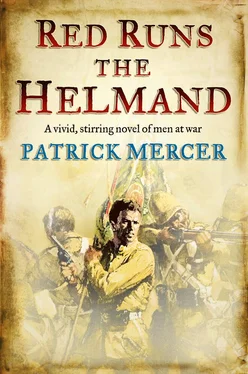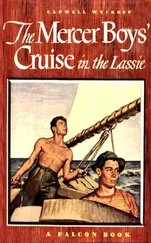It had been an uncomfortable couple of hours’ waiting for me, for Primrose had caught wind of it, as had some British journalists who were out and about in Kandahar, and he was pressing me for a full account before the editors in London learnt of it. But I had commanded a battalion – albeit nowhere more demanding than Pembroke Dock – and I knew how irritating pressure from above would be for the commanding officer. Once the matter was fully investigated, Lieutenant Colonel Galbraith had asked me to come into the cramped little hut that served as his office. He rose from behind a trestle table in his rumpled khaki and stood stiffly to attention, expecting the worst.
‘Sit down, sit down, please, Galbraith.’ Despite my attempts to put him at ease, Galbraith continued to stand. I threw myself into one of the collapsible leather-seated campaign chairs that were so popular at the time.
‘A cheroot?’ I flicked one of the little brown tubes towards him, but Galbraith shook his head without a word. ‘Tell me what happened.’
The 66th had been in India for almost ten years now, stationed at Ahmednagar and Karachi, and I’d been pleased to see how many long-service men they still included. While the new regulations allowed men to enlist for shorter periods – which was reckoned by some to be good for recruiting – I always thought it took some time for a lad from the slums of England to acquire any sort of resistance to the heat and pestilence of India. It can’t have been a coincidence that the Second Battalion of the 8th Foot – almost all young, short-service lads – had been gutted by disease last year outside Kabul.
‘Well, General, we had a routine patrol in the central bazaar earlier this morning, an officer, sergeant and six men. They all said that the atmosphere was tense, with a lot of people and beasts bringing goods to market. Suddenly the crowd opened and a child rushed at them with a knife in his hand.’ Galbraith had been in command of the 66th for four years now and had a reputation for being as devoted to them as his men were to him. Another English-Paddy from Omagh up north, my father knew his family, but the slim, handsome man, whose heavy moustache and whiskers made him look older than his forty years, had never thought to presume upon this link.
‘A child, Galbraith? How old was he?’ I found it hard to believe that a fully armed patrol of British soldiers might be attacked by a boy. A strapping youth, perhaps, for many of the Ghazis, while fully grown, were said by those who had had to face them to be too young to have proper beards. But a mere boy behaving like that I found difficult to credit.
‘Well, I’m not exactly sure, General, but young enough for there to be an almighty bloody fuss kicked up by the mullahs to whom the press are listening with all their normal evenhandedness,’ replied Galbraith.
‘Are you sure that one of the lads didn’t fire his rifle by mistake, hit the boy and now he’s trying to cover it up just like the Fifty-Ninth did?’ I knew soldiers: they’d lie most imaginatively if they thought it would save their necks. The story was still circulating about a drunken spree by the 59th last Christmas. Two of the men had been drinking and tinkering about with their rifles when one had shot the other. They had made up some cock-and-bull story about a Ghazi entering their barracks and, in an attempt to shoot him down, one man had accidentally wounded his comrade.
‘Well, no, sir. The youth was killed with a sword and a number of bayonet thrusts quite deliberately. The men didn’t fire for fear of hitting one of the crowd.’ Galbraith looked indignant.
‘Oh, good. That’s exactly what I wanted to hear. So now we don’t just have a child being killed, the poor little bugger was hacked to pieces by your ruffians while half of Kandahar looked on. I really don’t like the sound of this at all. Who was in charge of this fiasco? I hope you’re not going to tell me it was a lad straight out of Sandhurst with some lance sergeant at his side?’ When I’d paid my first visit to the 66th a few days ago, I’d been pleased with the appearance of the men but I’d noticed how junior some of the NCOs were. Galbraith had explained that he’d had to leave a large number of sergeants behind in India, either sick or time-expired, and he’d been forced to promote fairly inexperienced corporals to fill the gaps.
‘No, sir. Sar’nt Kelly is one of my best substantive sergeants with almost sixteen years’ service. He’s due to get his colours at the next promotion board. That’s why I’ve put him with one of my new officers.’ Galbraith came back at me hot and strong. ‘If you’d prefer to hear it straight from those who were there, sir, I’ve got Kelly and his officer waiting outside.’
‘Yes, I bloody well would. Ask them to march in, please, Heath.’ My tosspot of a brigade major had been sitting in on the meeting with Galbraith, his expression increasingly disapproving, not a shred of sympathy showing for the men who had been faced with what sounded to me like a thoroughly nasty business.
I saw the pair of them file in, smartly in step. Sergeant Kelly was five foot nine, heavily sunburnt, with a moustache trimmed to regulation length, and the ribbon of the rooti-gong above his left breast pocket. His puttees were wrapped just so, his khaki drill pressed as neatly as field conditions would allow, three red chevrons standing out starkly on his right sleeve and his brasswork polished for the occasion. He gave ‘Halt,’ then ‘Up,’ sotto voce to his subaltern, both men stamping in time before their hands quivered to the peaks of their khaki-covered helmets. After a silent count of ‘Two, three,’ they snapped them down to their sides. The officer was taller but slighter than his sergeant. His fair hair curled just a little too fashionably almost to his collar, his skin was red with the early summer sun and his moustache still not fully grown. Holding his sword firmly back against his left hip, pistol to his right, the single brass stars of an ensign on either side of his collar, he was my younger son, William.
‘Well, Sar’nt Kelly, Mr Morgan, if I’m to put up a good case on your behalf and keep your names from being spread over the gutter press, you’d better tell me exactly what happened this morning.’ Galbraith had deliberately not mentioned that my son was the officer involved – wise man that he was.
Now Billy cleared his throat and raised his chin before he spoke, just like his late mother might have done. ‘Sir, with your leave, I’ll explain everything . . .’
Chapter Two - The Ghazi
It was hot, and as Ensign Billy Morgan looked up into the cloudless sky he could see a pair of hawks circling effortlessly on the burning air just above the walls of Kandahar. They reminded him of the sleek, lazy-winged buzzards back in Ireland, except that there the sun rarely shone. He wondered how the thermals would feel to the birds – would they sense the heat of the air under their feathers as they scanned the collection of humanity below? And would they have any sense of the tensions that pulsed through the city under them? Then, as he looked at the gang of khaki-clad lads in front of him, he realised just how ridiculous his musings were. The birds cared not a damn for him or his soldiers, or for any man or living beast, he thought. Their eyes and beaks roamed ceaselessly for dead or dying things, for carrion to feed their bellies. Of the feelings and concerns of the men in the dust and grit below them, they knew nothing.
‘Is that belt tight enough, Thompson?’ Morgan was checking the six soldiers who had been detailed off to patrol the centre of Kandahar. They knew it would be a tense and hostile time, as the villagers pressed into the bazaars for market day.
Читать дальше












